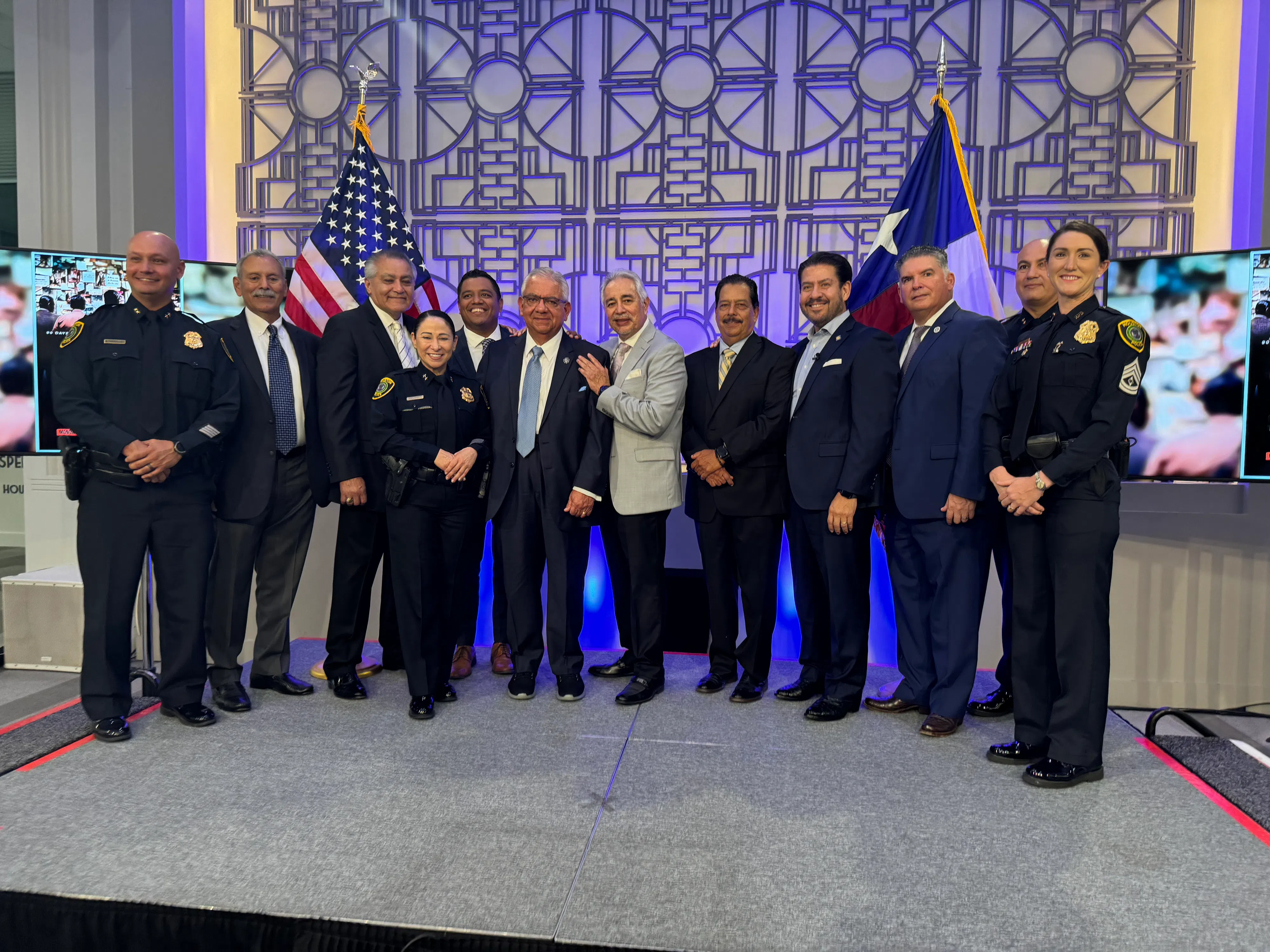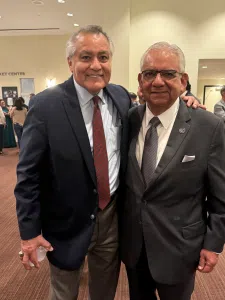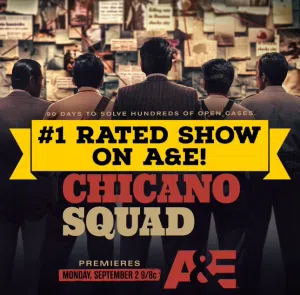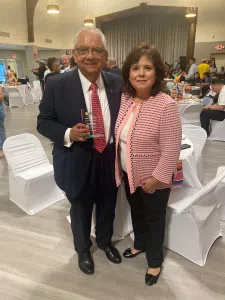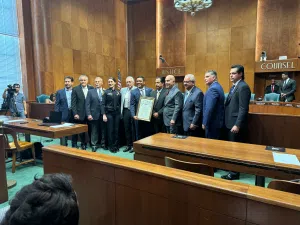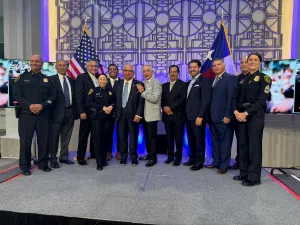Ruben Perez and the Chicano Squad
(Seguin) – TV viewers will want to note the role that one Seguin native plays in the recently released A&E documentary series Chicano Squad. The two-episode documentary, rated one of the top shows today, originally premiered Sept. 2-3 and chronicles the work, sacrifice, and determination of the first-ever Latin homicide investigative unit purposely pulled together in 1979 to tackle the hundreds of unsolved murders in Houston’s Latin neighborhoods.
Among those who worked alongside the team in the DA’s office was Segunite Ruben Perez, who at the time had just come on board serving as a city of Houston assistant attorney. Perez is now a Harris County Assistant District Attorney who serves as the Special Crimes Bureau Chief.
Although he credits all the work to the bilingual patrol officers who were pulled off their beats to work as detectives, Perez says he feels honored to have seen this revolutionized community policing team come together and surpass the Houston PD’s expectations.
“My association with the Chicano Squad happened because I was one of the few Spanish speaking ADA’s who knew the language, the slang and culture of the Latino community, which was similar to the members of the Chicano Squad. They overcame all these obstacles, and yes, they didn’t know the law, but I’m trained. I’m a lawyer so whatever assistance I could give them to navigate the criminal justice system, I was there to help them as a lawyer. I don’t want to take away from all the ADA’s in the office, but I was one of the few ADA’s that came from the barrio from the Juana Heights there in Seguin, and I knew the slang. So that certainly helped in not only helping the Chicano Squad but also in prosecuting these cases in court because a lot of the victims, a lot of the witnesses were Spanish speakers, and at the time, we did not have translation services, and that was a great great advantage in going to court,” said Perez. I worked alongside them investigating and prosecuting many cases including Spanish defendants, witnesses and victims. Our association was a natural fit,” said Perez.
Dubbed as the Chicano Squad by Houston media, the team consisted of five detectives: Jim Montero, Jose Selvera, Raymond Gonzales, U.P. Hernandez, and Cecil Mosqueda. In its quest to solve crime, the Houston PD extended the five bilingual Mexican department rookies only 90 days to solve all open Latin murder cases. Not only was it seen as a way to bring closure to cases but to “regain the trust of the community and assist in any new crimes involving Spanish-speaking people.”
“Back in the days, the law enforcement community was not exactly a bastion of equal opportunity. The ranks in law enforcement were not very diverse. Advancement could be very difficult,” said Perez.
Having no prior homicide experience, Perez says the crime fighters who also experienced their own plight of racism and discrimination within the department, in the end, proved successful having cleared 80 percent of their cases.
“I am so happy that the Chicano Squad achievements and struggles were finally documented and told. The Chicano Squad members as is documented in the docuseries faced many challenges such as few resources, very little training, and racism. I think they were set up for failure but in spite of these obstacles, because of their passion for seeking justice for victims, they succeeded. Passion for this line of work cannot be taught. The community could feel the genuineness of these men and thus the community trusted them. The Chicano Squad earned the trust of the community. I hope that that this documentary illustrates to young men and women that hard work and perseverance can overcome obstacles to whatever goal you wish to accomplish. I have been fortunate to travel to many countries of the world where opportunities can be very minimal whereas opportunities notwithstanding many obstacles in our country are available,” said Perez.
Even though the Chicano Squad inspired similar units across the country, the concept quickly dissolved as police departments became more diverse. Despite the circumstances of the unit and the years that have since passed, Perez says some of its many lessons still exist today.
“What I learned was that as a person of color, I had to be twice as good and work twice as hard not to be considered better but just to be considered just as good,” said Perez.
Inspired to tell the story of the Chicano Squad via the documentary was Sergio Selvera, the son of one of the squad members Jose Selvera.
The historic contributions of the Chicano Squad were also recently recognized by the city of Houston. Included in that original team were people like Perez, who played an essential role in helping the squad bring justice to the victims’ families. The release of the documentary was done in honor of the 45th anniversary of the formation of the squad.
The documentary remains available on A&E and other streaming services.





